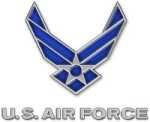Necessary Step For Flight Within The U.S.
 Northrop Grumman Corporation says the U.S. Air Force has
granted the RQ-4 Global Hawk high-altitude, long-endurance (HALE)
unmanned aircraft system (UAS) a military Airworthiness
Certification (AWC), a significant milestone in the life of the
aircraft system and a step on the path to routine unmanned flight
within the United States.
Northrop Grumman Corporation says the U.S. Air Force has
granted the RQ-4 Global Hawk high-altitude, long-endurance (HALE)
unmanned aircraft system (UAS) a military Airworthiness
Certification (AWC), a significant milestone in the life of the
aircraft system and a step on the path to routine unmanned flight
within the United States.
The AWC process verifies an aircraft design has met performance
requirements within the mission profile to safely fly in national
airspace and assures operators and mission managers that the
production articles conform to the design. In granting the
certification to RQ-4, the next generation of Block 20 and 30
Global Hawk UAS, the U.S. Air Force has recognized the aircraft's
ability to routinely fly safely within design parameters. The
certification process evaluated more than 600 airworthiness
criteria.
 "This was a more rigorous and more complete evaluation than
that of any other unmanned system," said George Guerra, vice
president of HALE systems for Northrop Grumman. "With this historic
accomplishment and more than 35,000 total flight hours, most of
that time in combat support over the skies of Iraq and Afghanistan,
Global Hawk continues to be a trailblazer in UAS certifications and
a pathfinder supporting our men and women overseas in combat."
"This was a more rigorous and more complete evaluation than
that of any other unmanned system," said George Guerra, vice
president of HALE systems for Northrop Grumman. "With this historic
accomplishment and more than 35,000 total flight hours, most of
that time in combat support over the skies of Iraq and Afghanistan,
Global Hawk continues to be a trailblazer in UAS certifications and
a pathfinder supporting our men and women overseas in combat."
Just as commercial aircraft are certified by the FAA, military
aircraft are evaluated against certain criteria including
durability, capability to adjust to sudden changes in aerodynamic
forces, and redundancies of systems and subsystems. Without this
Air Force certification, the FAA cannot grant permission to fly
within the United States, which is the next step in the on-going
process to accept the routine flight of unmanned aircraft in the
national airspace.
"This certification resulted from a large collaborative effort
between the government and the contractor, agreeing on standards
and verification methods and ultimately coming together on the
assessment of the system. With its Advanced Concept Technology
Demonstration legacy design and early push to support Overseas
Contingency Operations and U-2 retirement, this was the first
comprehensive assessment of the aircraft to ensure it is ready to
fly in national airspace and ready for the user to train with at
Beale AFB," said Yvette Weber, chief engineer at the 303d
Aeronautical Systems Group at Wright Patterson AFB in Dayton,
Ohio.
Meanwhile, the U.S. Air Force has awarded Northrop Grumman a
$302.9 million fixed price incentive fee contract for five of the
RQ-4 systems. Under the Lot 7 production contract, the company will
build two Block 30 systems and three Block 40 systems for the 303d
Aeronautical Systems Group at Wright Patterson AFB in Dayton,
Ohio.

The award also includes a ground station consisting of a launch
and recovery element and a mission control element, plus two
additional sensor suites that will be retrofitted into previous
production aircraft. The contract runs through 2011.
The company will deliver in 2010 the two Block 30 aircraft
equipped with the Enhanced Integrated Sensor Suite (EISS) that
provides electro-optical/infrared and synthetic aperture radar
imaging capabilities. These aircraft will also be retrofitted to
incorporate the production Airborne Signals Intelligence Payload.
The Lot 7 contract also includes the first production
Multi-Platform Radar Technology Insertion Program payloads, which
will be contractually awarded later this year. The company will
also deliver two EISS suites for use on aircraft delivered
earlier.
 Airborne-Flight Training 05.09.24: ERAU at AIAA, LIFT Diamond Buy, Epic A&P
Airborne-Flight Training 05.09.24: ERAU at AIAA, LIFT Diamond Buy, Epic A&P ANN's Daily Aero-Term (05.07.24): Hazardous Weather Information
ANN's Daily Aero-Term (05.07.24): Hazardous Weather Information Aero-News: Quote of the Day (05.07.24)
Aero-News: Quote of the Day (05.07.24) NTSB Final Report: Cessna 150
NTSB Final Report: Cessna 150 Aero-News: Quote of the Day (05.08.24)
Aero-News: Quote of the Day (05.08.24)





